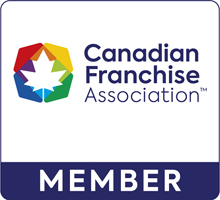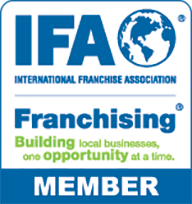Should You Buy an Existing Franchise or Start Your Own?
Sometimes buying a franchise doesn’t mean engaging with the franchisor and starting a business from scratch, sometimes it means purchasing an existing franchise location. Much like standalone businesses, franchises can be sold if the owner doesn’t want to be in that business anymore.
The franchise can either choose to purchase that location from the franchisee and run it as a corporate location or they can transfer ownership to another franchisee to take over or they can choose to let the franchisee sell it to an approved buyer.
As with anything, there are pros and cons to buying an existing franchise instead of starting your own franchise location from scratch. Let’s look at the pros and cons of buying versus starting from scratch.
Les Pros
These are the things that are advantageous to buying an existing franchise location.
No waiting
Since the franchise has already been running, you should be able to start doing business from day one. You will already have a system in place and a base of customers, a list of vendors to work with, trained employees who can run the business, and cash flow to keep everything running.
You get to skip poring over demographics data, searching for a location, building out the site and doing all the prep work necessary when starting a new franchise business.
Homework will be easier
Even if you’re going to buy an existing franchise, you’ll need to perform your due diligence. The good news is that it will be easier with an existing location because that location will have historical data on hand to review and help you make a decision.
You’ll also still be able to perform your due diligence with the franchisor by asking the selling franchisee about their relationship with the company and possibly get some other franchisee contacts to talk with.
Price flexibility
Unlike new franchises, which have set fees and terms that are rarely negotiable, you can haggle on the price of an existing franchise location along with most other aspects of the sale. Of course, with this transaction, there is a third-party -- the franchisor -- and that may affect negotiations.
Les Cons
And here are the potential negatives about buying an existing franchise location.
Declining sales?
The departing franchisee might be leaving for reasons completely unrelated to business or franchisor performance, but on the other hand, those could be exactly the reasons they want to get out while the gettin’ is good.
Make sure you ask the franchisee why they’re leaving the business. Is it because the demographics of the neighbourhood are changing and it can no longer support the business? Is it because competitors have started to pop up and now the business is on the decline? Is it because the franchisor has not been as supportive as the franchisee thought it would be?
It’s tempting to believe that you’ll be the hero to come in and turn a downward trending business around or have a better relationship with the franchisor, but don’t count on that being the case. Sometimes a location just can’t support a business anymore.
Remodeling?
If the franchise has been around for an especially long time, it might mean that it no longer meets the standards of the franchisor and requires an upgrade. If this is the case, you’ll need to know the cost of doing that, the time it will take to do that and the potential downtime of doing that.
Bad rep?
When you buy an existing business, you inherit a lot of things and that includes the business’ reputation. If the previous owner gave the business a bad name, you’ll be burdened with that bad name until you can prove the location has been turned around.
You will also likely inherit much of the staff. This can be either good or bad. If the staff is competent, this will be a boon to you. If they are not, you will be forced to replace them and train new staff, which will add to expenses. It may be that the staff has learned to do things one way and you prefer to have them done a different way or they might just have been victims of poor management. Either way, if the business was not run well, you’ll need to work extra hard to turn it around and earn a good reputation for it.
Bought already?
Generally, the franchisor has the right of first refusal when it comes to buying franchise locations in their system. Get solid confirmation from the franchisor that they aren’t planning to purchase the location so you don’t go through all your negotiations and research to find out that the business is going to be snapped up by the franchisor.
Different deal?
This may or may not turn out to be a con, but you cannot assume that you will simply be able to take over the existing agreement between that franchise location and the franchisor. You might have to renegotiate an all new deal with the franchise with different fees and different guidelines to follow.
Added fees?
While you may not be required to pay the initial franchising fee like you would if you were to open a brand new franchise location, you might have to pay a transfer fee and you might be required to pay for training and go through a time-consuming orientation period.
And you might not even get approved by the franchisor, either. They will want to know how much you’re paying for the location and how you are financing the purchase. If the price you’re paying is too high and you don’t have a solid financing plan in place, that’s a risk for the franchisor because it’s more likely that the business will fail.
Purchasing an existing franchise location can be a fantastic way to join a franchise and it has a lot of positives. But, you still need to perform your due diligence and consult with qualified legal advisors to make sure you’re being treated fairly. If you are thinking of joining a franchise, FranNet can help you find the perfect one. Sign up for a free FranNet franchise search and consultation today.





